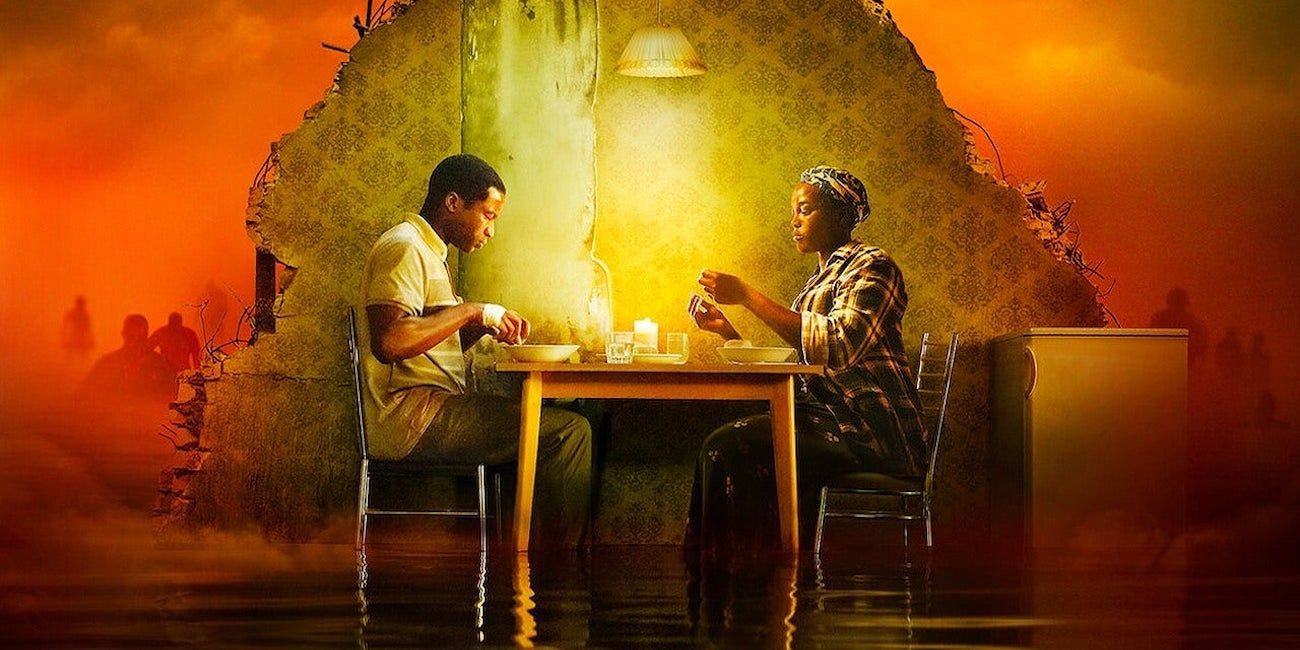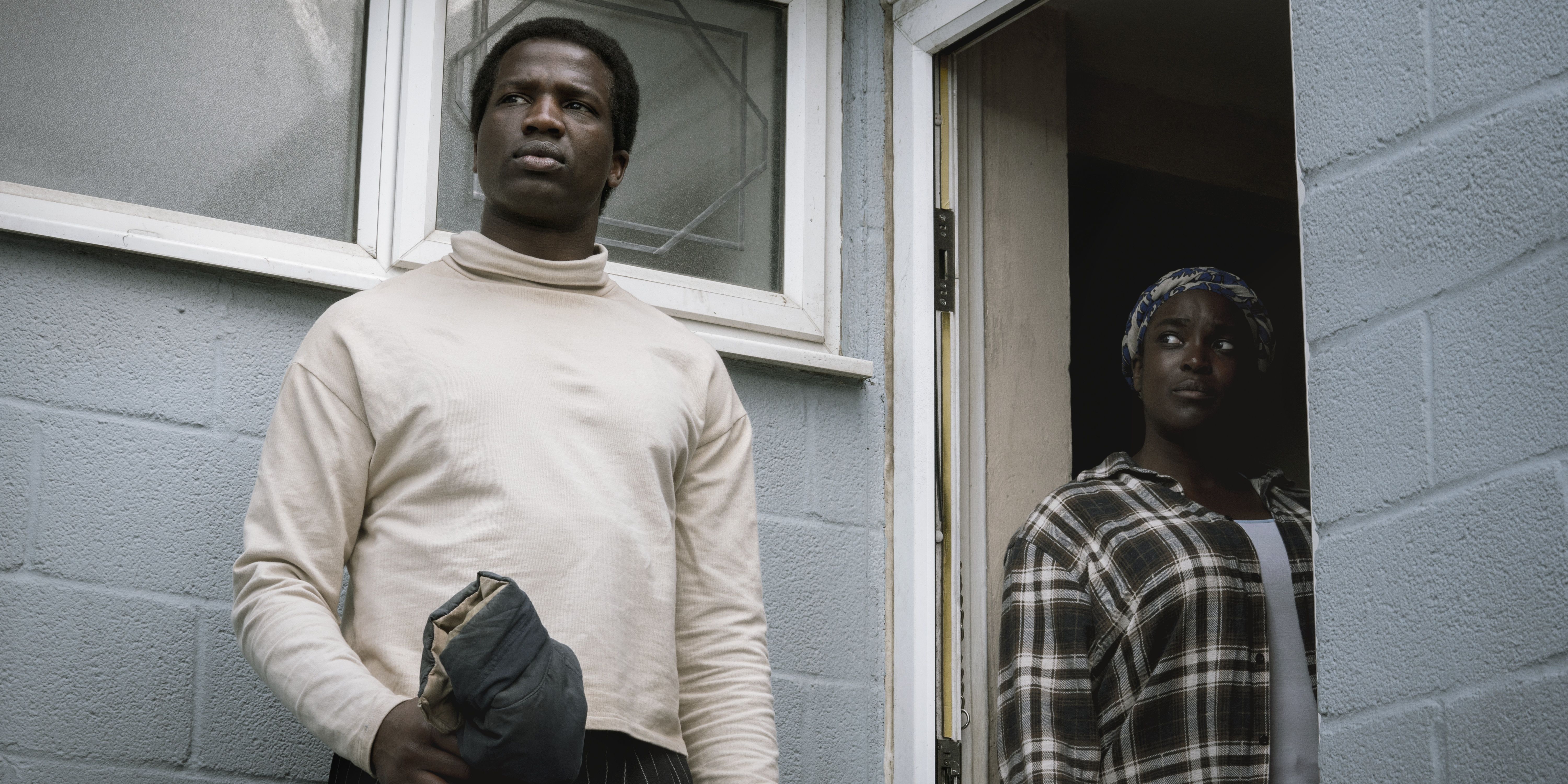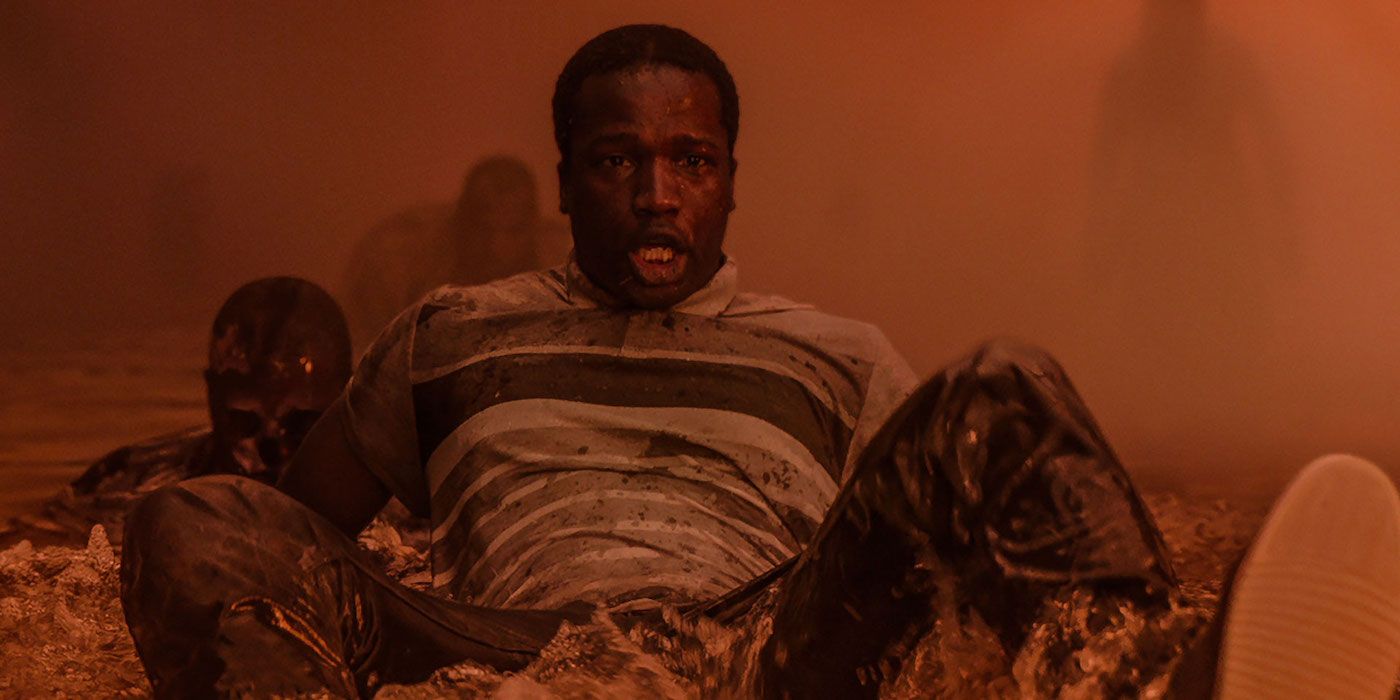WARNING: The following contains spoilers for His House, now streaming on Netflix.
Netflix's His House is a classic haunted-house movie, but in this story, the people being haunted can't leave their home. That's because main characters Rial and Bol are Sudanese refugees and British law forbids them from living anywhere but the ramshackle public housing they've been placed in. The movie, which premiered at the Sundance Film Festival earlier this year and marks Weekes' feature directing debut, uses this framework to tell a story about the fear and trauma of the immigrant experience. In the film, the horrors Rial and Bol suffer to make it to England haunt them just as much as the ghosts in their new home.
At a Q & A session in support of the film attended by CBR, His House director Remi Weekes was joined by his lead actors, Sope Dirisu (Gangs of London), who plays Bol, and Wunmi Mosaku (Lovecraft Country), who plays Rial, to discuss the inspiration behind the film, what makes the story special and the roots of its surreal set pieces.
When Weekes initially began considering the concept for His House, he drew on his own experiences as the descendant of immigrants for inspiration for the story. "I thought a lot about growing up in London, and being in the UK and kind of coming from an immigrant background," Weekes explained. "I always felt -- and I don't think I'm the only one here -- I always felt like there’s part of me that felt quite rejected from the main culture. And one part of me wanted to assimilate and try hard to fit in with the [dominant] culture and then this other part of me that wants to reject that culture and find my roots and find my history and be proud of that."
Those dueling impulses were the jumping off point for His House's two main characters. While Rial has difficulty adjusting to life in the UK -- and isn't sure she wants to -- Bol does his best to fit in, changing what he wears, how he eats and bonding with the neighbors at the local pub. That ability to explore the challenges of the immigrant experience from the inside is one of the things that attracted both Dirisu and Mosaku to the project.
"I love these [characters]," Mosaku noted. "And then reading [the script], I was like, 'Wow, they really are haunted.' They are haunted by what they’ve been through, they’re haunted by what they've experienced, their loss, the people that they become, they’re haunted by that."
Dirisu agreed, observing, “I really connected with the story that Remi wanted to tell. [I connected] with the characters and how they clash and how they unite and the reason behind that, and also the picture of the world that we're living in. I mean, the migrant crisis was still very much in the forefront of the news when we started working on this project and it's disappeared from social consciousness because it's not being spoken about as much. But people are still crossing the Mediterranean, people are still being forced and evicted out of their homes because of civil war and conflict, we're just not talking about it anymore. So I'm really proud to be a part of this project to hopefully bring it back into the consciousness.”
Mosaku also added that the movie enables viewers to "see the people that you hear spoken about, but we don't necessarily engage with them and their story on a personal level. And as much as I am someone who's always like, 'I would love a world without any borders and I don't believe that anyone is illegal,' I hadn't really connected emotionally with the journey that these people take, the risks that they take. I hadn't really seen it. I thought I was aware of the refugee crisis, but I hadn’t heard from the people in a way that I had heard them being spoken about, and this film made me really, truly connect and feel so deeply."
Weekes shared that one of the ways he illustrated the clash between the culture Bol and Rial come from and the culture of their new home was through the film's surreal imagery, including a haunting set piece where Bol and Rial find themselves adrift on the ocean while still sitting at their dinner table. To create the strange images seen throughout the movie, Weekes said he drew on English and African "mythologies and conventions" in order to create "a kind of marriage of the two different cultures" that created visuals that were new and exciting.
The ability to use surreal imagery was also part of the reason Weekes used the horror genre to tell the story. “I love the ability of cinema to transport you to somewhere new and crack open ideas or theories or big, maybe dry concepts and restore them into feelings and emotions and people you care about and people you have to follow and need to know what happens next," Weekes explained. "And I think that’s why I was drawn, not just to horror, but to a way of telling the story that was maybe more, I guess, surreal."
Weekes also noted that horror's ability to make the psychological real was what ultimately what makes His House work. "[Horror] has the ability to go into someone’s anxieties and fears and trauma and realize them in a way that makes them tangible and physical and frightening," Weekes noted. "And I guess that's what I was drawn to for this film."
Starring Sope Dirisu, Wunmi Mosaku and Matt Smith, His House is currently streaming on Netflix.



